- Home
- Richard Kadrey
Devil in the Dollhouse Page 5
Devil in the Dollhouse Read online
Page 5
He smiled and put the bag in his pocket. "Just to prevent any problems, just to short circuit any second thoughts you might be having about why you should give a person like me all this money for some paper you could have gotten yourself, I want to make sure you understand that the nature of my work is facilitation. I'm a facilitator. I'm not a dealer, or muscle, or a thief, but I can do all those things, if required. What I got you wasn't a birth certificate; any asshole could have gotten you a birth certificate. What I got you was the birth certificate. One that matches you, close enough so that getting you a passport, letting you move around, will be no problem. I had to check over two years of obituaries, contact the right agencies, grease the right palms. It's knowing which palms to grease and when that you're paying me for. Not that piece of paper."
I slid my new identity into my jacket. "Thanks," I said.
Outside Cafe Juju, the warm, immobile air had taken on the quality of some immense thing at rest—a mountain or phantom whale, pressing down on the city, squeezing its Sargasso dreams from the cracks in the walls out onto the streets. I pulled put my emergency hip flask and took a drink. I was reminded of the region of windless ocean known at the Horse Latitudes, called that in remembrance of the Spanish galleons that would sometimes find themselves adrift in those dead waters. The crews would strip the ship down to the bare wood in hopes of lightening themselves enough to move in the feeble breeze. When everything else of value had been thrown overboard, the last thing to go were the horses. Sometimes the Horse Latitudes were carpeted for miles with a floating rictus of palominos and Arab stallions, buoyed up by the immense floating kelp beds and their own churning internal gases. The Horse Latitudes were not a place you visited, but where you found yourself if you allowed your gaze to be swallowed up by the horizon, or to wander on the map to places you might go, rather than where you were.
I'd walked a couple of blocks up Ninth Street when I realized I was being followed. It was my habit to stop often in front of stores, apparently to window shop or admire the beauty of my own face. In fact, I was checking the reflections caught in the plate glass, scanning the street behind me for faces that had been there too long. This time I couldn't find a face, but just beyond a wire pen where a group of red-faced campasenos were betting on cock fights, I did see a jacket. It was bulky and black, of some military cut, and one side was decked with the outline of a bird skull done in clusters of purple and white rhinestones. The jacket's owner hung back where vehicles and pedestrians blocked most of the streetlight. It was only the fireworks in the rhinestones that had caught my eye.
Just to make sure it wasn't simple paranoia, I went another block up Ninth and stopped by the back window of a VW van full of caged snakes. When I checked again, the jacket had moved closer. I cut to my right, down a side street, then left, back toward the market. The jacket hung behind me, the skull a patch of hard light against the dark buildings.
I ran down an alley between a couple of closed shops and kept going, taking corners at random. The crumbling masonry of the ancient industrial buildings was damp where humidity had condensed on the walls. I found myself on a dark street where the warehouses were lost behind the blooms of pink and purple orchids. The petals looked like frozen fire along the walls. Behind me, someone kicked a bottle, and I sprinted around another corner. I was lost in the maze of alleys and drivethrus that surrounded the rotting machine shops and abandoned wrecking yards. Sweating and out of breath, I ran toward a light. When I found it, I stopped.
It was a courtyard or a paved patch of ground where a building had once stood. Fires were going in a few battered oil drums, fed by children with slabs of dismantled billboards, packing crates, and broken furniture. Toward the back of the courtyard, men had something cooking on a spit rigged over one of the drums. Their city- issued mobile shelters, something like hospital gurneys with heavy- gauge wire coffins mounted on top, were lined in neat rows against one wall. I had heard about the tribal homeless encampments, but had never seen one before. Many of the homeless were the same junkies and losers that belonged to every big city, but most of the tribal people, I'd heard, were spillover from the refugee centers and church basements. Whole villages would sometimes find themselves abandoned in a strange city, after being forcibly evacuated from their farms in Venezuela and Honduras. They roamed the streets with their belongings crammed into government-issue snail shells, fading into a dull wandering death.
But it wasn't always that way. Some of the tribes were evolving quickly in their new environment, embracing the icons of the new world that had been forced on them. Many of the men still wore lip plugs, but their traditional skin stains had been replaced with metal- flake auto body paint and dime store make up. The women and children wore necklaces of auto glass, strips of mylar, and iridescent watch faces. Japanese silks and burned-out fuses were twined in their hair.
Whatever mutual curiosity held us for the few seconds that I stood there, passed when some of the men stepped forward, gesturing and speaking to me in a language I didn't understand. I started moving down the alley. Their voices crowded around me; their hands touched my back and tugged at my arms. They weren't threatening, but I still had to suppress an urge to run. I looked back for the jacket that had followed me from Cafe Juju, but it wasn't back there.
I kept walking, trying to stay calm. I ran through some breathing exercises a yoga guru I'd knew for a week in Munich had taught me. After a few minutes, though, some of the tribesmen fell away. And when I turned a corner, unexpectedly finding myself back on Ninth, I discovered I was alone.
On Market, I was too shaky to bargain well and ended up paying a gypsy cab almost double the usual rate for a ride to the Sunset. At home, I took a couple of Percodans and washed them down with vodka from the flask. Then I lay down with all my clothes on, reaching into my pocket to hold the new identity Virilio had provided me. Around dawn, when the howler monkeys started up in Golden Gate Park, I fell asleep.
I tried to write some new songs, but I had become overcome with inertia, and little by little lost track of myself. Sometimes, on the nights when the music was especially bad or I couldn't stand the random animal racket from the park anymore, I'd have a drink, and then walk. The squadrons of refugees and the damp heat of the rainforest that surrounded the city made the streets miserable much of the time, but I decided it was better to be out in the misery of the streets than to hide with the rotten music in my room.
I was near Chinatown, looking for the building where I'd shared a squat years before, when I ran into a crowd of sleepwalkers. At first, I didn't recognize them, so complete was their impression of wakefulness. Groups of men and women in business clothes waited silently for buses they had taken the previous morning, while merchants sold phantom goods to customers who were home in bed. Smiling children played in the streets, dodging ghost cars. Occasionally a housewife from the same neighborhood as a sleepwalking grocer (because these night strolls seemed to be a localized phenomenon, effecting one neighborhood at a time) would reenact a purchase she had made earlier that day, entering into a kind of slow motion waltz with the merchant, examining vegetables that weren't there or weighing invisible oranges in her hand. No one had an explanation for the sleepwalking phenomenon. Or rather, there were so many explanations that they tended to cancel each other out. The one fact that seemed to be generally accepted was that the night strolls had become more common as the rainforest crept northward toward San Francisco, as if the boundary of Amazonia was surrounded by a region compounded of the collective dreams of all the cities it had swallowed.
I followed the sleepwalkers, entering Chinatown through the big ornamental gate on Grant Street, weaving in, out, and through the oddly beautiful group pantomime. The streets were almost silent there, except for the muted colors of unhurried feet and rustling clothes. None of the sleepwalkers ever spoke, although they mouthed things to each other. They frowned, laughed, got angry, reacting to something they had heard or said when they had first lived that part
icular moment.
It was near Stockton Street that I heard the looters. Then I saw them, moving quickly and surely through the narrow alleys, loaded down with merchandise from the sleepwalkers' open stores. The looters took great pains not to touch any of the sleepers. Perhaps they were afraid of being infected with the sleepwalking sickness.
Watching them, cop paranoia got a hold of me, and I started back out of Chinatown. I was almost to the gate, dodging blank-eyed Asian children and ragged teenagers with armloads of bok choy and video tapes when I saw something else: Coming put of a darkened dim sum place—a jewelled bird skull on a black jacket. The jacket must have spotted me too, because it darted back inside. I followed it in.
A dozen or so people, mostly elderly Chinese couples sat miming silent meals inside the unlit restaurant. Cats, like the homeless, had apparently figured out the pattern the sleepwalking sickness took through the city. Dozens of the mewing animals moved around the tables, rubbing against sleepers' legs, and licking grease off the stacked the dim sum trays. I went back to the kitchen, moving through the middle of the restaurant, trying to keep the sleepers around me as a demilitarized zone between me and the jacket. I wasn't as certain of myself inside the restaurant as I had been on the street. Too many sudden shadows. Too many edges hiding between the bodies of the dreaming patrons.
There were a couple of aproned men in the kitchen, kneading the air into dim sum. Cats perched on the cutting tables and freezer like they owned the place. Whenever one of the sleepwalking cooks opened the refrigerator doors, the cats went berserk, crowding around his legs, clawing at leftover dumplings and chunks of raw chicken. There was, however, no jacket back there. Or in the restroom. The rear exit was locked. I went back out through the restaurant, figuring I'd blown it. I hadn't had any medication in a couple of weeks, and decided I'd either been hallucinating again, or had somehow missed the jacket while checking out the back. Then from the dark she said my name, the name she knew me by. I turned in the direction of the voice, and the jewelled skull winked at me from the corner.
I had walked within three feet of her. She was slumped at a table with an old woman, only revealing herself when she shifted her gaze from the tablecloth to me, doing a good imitation of the narcotised pose of a sleeper. She motioned for me to come over and I sat down. Then she pushed a greasy bag of cold dim sum at me. "Have one," she said, like we were old friends.
"Frida?" I said.
She smiled. "Welcome to the land of the dead."
"Why were you following me?"
"I was raiding the fridge." She reached into the bag and pulled out a spring roll, which she wrapped in a paper napkin and handed to me. As she moved, I caught a faint glimmer off the gold rings above her eyebrow. "You, I believe, were the one who only seconds ago was pinballing through here like Blind Pew."
"I'll have my radar checked. Do you always steal your dinner?"
"Whenever I can. I'm only at the cafe a couple of nights a week. And tips aren't what they used to be. Even the dead are peckish around here."
The old woman with whom we shared the table leaned from side to side in her chair, laughing the fake, wheezing laugh of sleepers, her hands describing arcs in the air. "So maybe you weren't following me tonight," I said. "Why did follow me the other night from Cafe Juju."
"You remind me of somebody."
"Who?"
"I don't know. Your face doesn't belong here. But I don't know where it should be, either. I know I've seen you before. Maybe you're a cop and you busted me. Maybe that's why you look familiar. Maybe you're a bad guy I saw getting booked. Maybe we went steady in the third grade. Maybe we had the same piano teacher. Ever since I saw you at the cafe, I've got all these maybes running through my head."
"Maybe you've got me mixed up with someone."
"Not a chance," said Frida. She smiled and in the half-light of the restaurant I couldn't tell if she knew who I was or not. She didn't look crazy, but she still scared me. I'd gone to the funeral of more than one friend who, walking home, had turned a corner and walked into his or her own Mark David Chapman. Frida's smile made her look strangely vapid, which surprised me because her eyes were anything but that. Her face had too many lines for someone her age, but there was a kind of grace in the high bones of her cheeks and forehead.
"You're not a cop or a reporter, are you?" I asked.
Her eyes widened in an expression that was somewhere between shock and amusement. "No. Unlike you, I'm pretty much what I appear to be."
"You're a waitress who tails people on her breaks."
She shrugged and bit into her spring roll, singing, "Get your kicks on Route Sixty-six."
"Now you're just being stupid, " I said. "Virilio didn't tell me that part. He just said you were crazy."
"Did he say that?" She looked away and her face fell into shadow. I leaned back, thinking that if she was crazy, I might have just said the thing that would set her off. But a moment later she turned back, wearing the silly smile. "Virilio's one to talk, playing Little Caesar in a malaria colony." She picked up a paper napkin from the table and, with great concentration, began wiping her hands, a finger at a time. Then she said: "I'm looking for something."
"The Music of Jungles?"
"Jesus, did he tell you my favorite color, too?"
"He just told me it was something you'd told him."
"Red," she said and shrugged. "I am looking for something. But it's kind of difficult to describe."
"California is on its last legs. If you want to play music, why don't you go to New York?"
She reached down and picked up a wandering cat. It was a young Abyssinian, and it immediately curled up in her lap, purring. "What I'm looking for isn't in New York," she said. "I thought from your face you might be looking for something, too. That's why I followed you."
"What is the Music of Jungles?" I asked.
She shook her head. "No, I'm sorry. I think I made a mistake."
I slid the hip flask from my pocket and took a drink. "Tell you the truth, I am looking for something, too."
"I knew it," she said. "What?
"Something new. Something I've only seen in flashes. A color and quality of sound that I've never been able to get out of my head. I started out looking for it, but got distracted along the way. I figure this is my last chance to see if it's really there, or just another delusion."
"You're a musician?" she asked.
"Yes."
She picked up the flask, sniffed, and took a drink, smiling and coughing a little as the vodka went down. "What's your name?" she asked.
"You already know my name."
"I know a name," she said, setting down the flask. "Probably something store bought. Maybe from Virilio?"
I shrugged and took the flask from her. "Your turn. What's the Music of Jungles?"
She looked down and leaned back in her chair, stroking the cat. "First off, " she said, "it's not the Music of Jungles. Jungles are in Tarzan movies. What you're trying to describe is a tropical forest or a rainforest. I don't use rainforest sounds in my music because I think they're beautiful, although I do think they're beautiful," she said. "I use them because they're the keys to finding the Songtracks of a place."
Frida set the cat on the floor and leaned forward, elbows resting on the table. "Here's what it is," she said, "Some of the tribal people in Amazonia believe that the way the world came into existence was through different songs sung by different gods, a different song for each place. The land, they believe, is a map of a particular melody. The contours of the hills, the vegetation, the animals—they're notes, rests and rhythms in the song that calls a place into being, and also describes it. Over thousands of years the Indians have mapped all the songs of Amazonia, walked everywhere and taught the songs to their children.
"Where we are now, though, is special," Frida said, and she drew her hands up in a gesture that took in all of our surroundings." The forest that surrounds San Francisco, it's Amazonia, but it's new. And it has its
own unique Songtrack. That's what all my music is about. That's what I'm all about. No one has found the song of this part of Amazonia yet, so I'm going to find it," she said.
"When you find it, what will the song tell you?" I asked.
She shrugged, pressing her hands deep into the pockets of her jacket. "I don't exactly know. Maybe the story of the place. What what went on here in the past; what'll happen in the future. I don't know exactly. It's enough for me just to do it."
I put the flask in my pocket. "Listen Frida," I said, "the atmosphere in here is definitely not growing on me. Would you like to go someplace?"
"I don't live too far away." She paused and said, "Maybe I could play you some of my music."
"I'd like that," I said. As she stood she said, "You know, you managed to still not tell me your name."
I looked at her for a moment. An old man shuffled between us, nodding and waving to sleeping friends. I thought about the Music of Jungles. Was this woman insane, I wondered. I'd been dreaming so long myself, it hardly seemed to matter. I told her my real name. She hardly reacted at all which, to tell you the truth, bothered me more than it should have. She picked up a bulky purse-sized object from the floor and slung it over her shoulder, looped her arm in mine, and led me into the street.
"This is a digital recorder," she said, indicating the purse-thing. "I go to Marin and Oakland whenever I can, fewer people means I get cleaner recordings. I prefer binaural to stereo for the kind of work I'm doing. It has more natural feel."
"Teach me to use it?" I asked.
"Sure. I think you can handle it."
"Why do I feel like I just passed an audition?"
"Maybe because you just did."
In the quivering light of the mercury vapor lamps, the activity of the Chinatown looters was almost indistinguishable from the sleeping ballet of children and merchants.

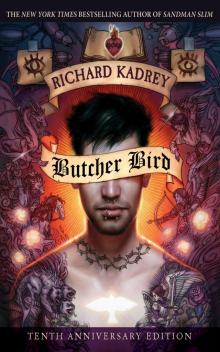 Butcher Bird
Butcher Bird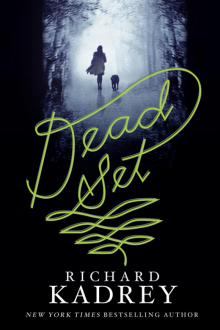 Dead Set
Dead Set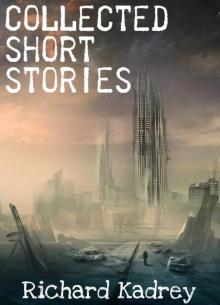 Devil in the Dollhouse
Devil in the Dollhouse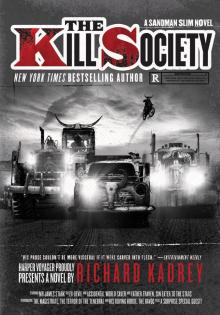 The Kill Society
The Kill Society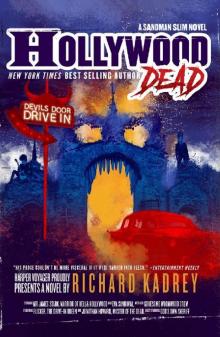 Hollywood Dead
Hollywood Dead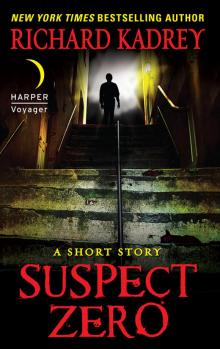 Suspect Zero
Suspect Zero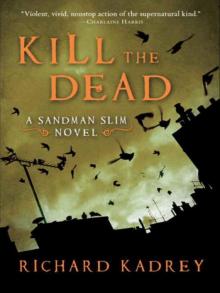 Kill the Dead
Kill the Dead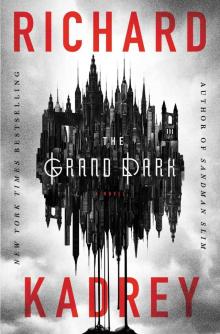 The Grand Dark
The Grand Dark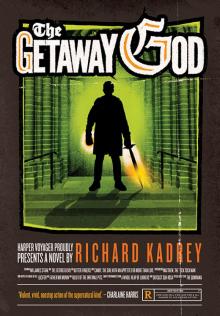 The Getaway God
The Getaway God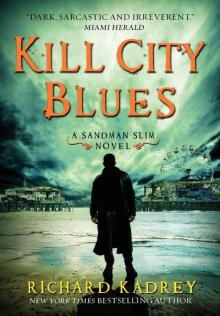 Kill City Blues
Kill City Blues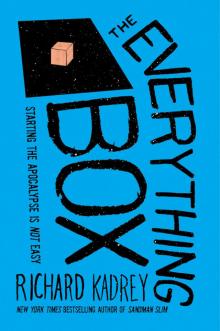 The Everything Box
The Everything Box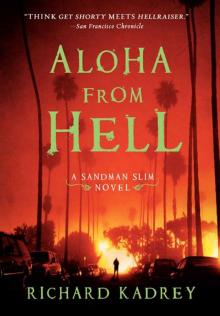 Aloha from Hell
Aloha from Hell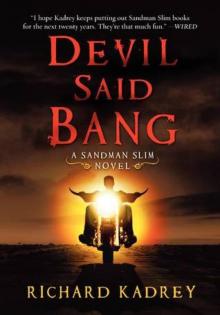 Devil Said Bang
Devil Said Bang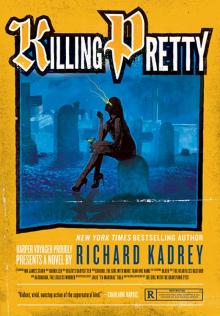 Killing Pretty
Killing Pretty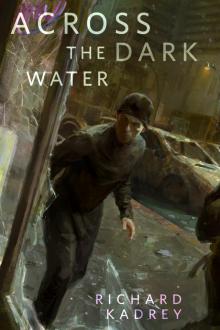 Across the Dark Water
Across the Dark Water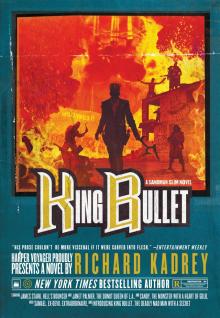 King Bullet
King Bullet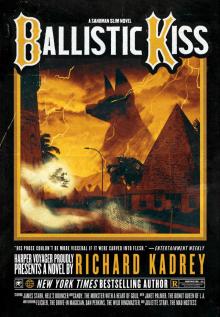 Ballistic Kiss
Ballistic Kiss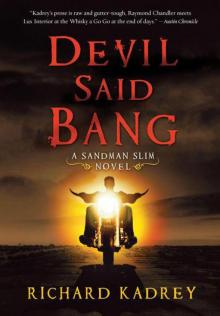 SS 04: Devil Said Bang: A Sandman Slim Novel
SS 04: Devil Said Bang: A Sandman Slim Novel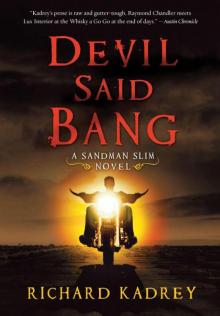 Devil Said Bang (Sandman Slim)
Devil Said Bang (Sandman Slim)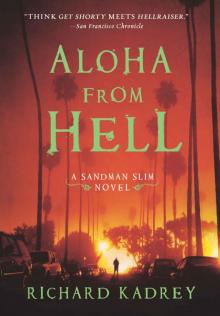 Aloha from Hell (Sandman Slim)
Aloha from Hell (Sandman Slim)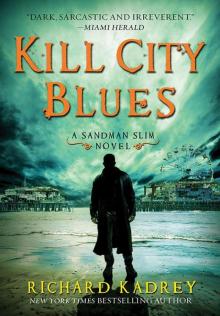 Kill City Blues: A Sandman Slim Novel
Kill City Blues: A Sandman Slim Novel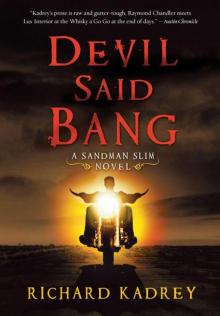 Devil Said Bang ss-4
Devil Said Bang ss-4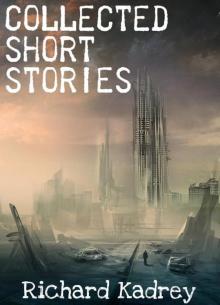 Collected Short Stories
Collected Short Stories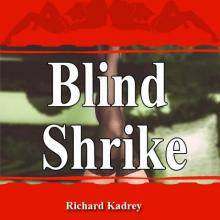 Blind Shrike
Blind Shrike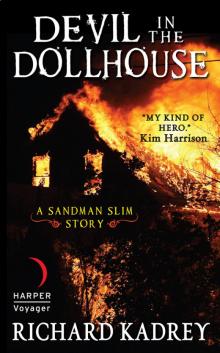 Devil in the Dollhouse: A Sandman Slim Story
Devil in the Dollhouse: A Sandman Slim Story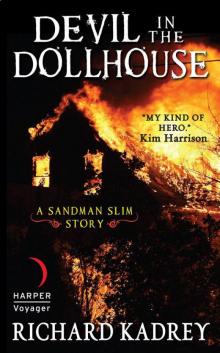 Devil in the Dollhouse (sandman slim)
Devil in the Dollhouse (sandman slim)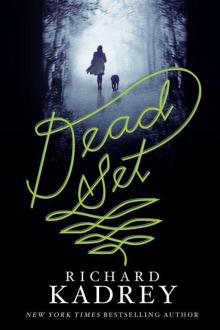 Dead Set: A Novel
Dead Set: A Novel